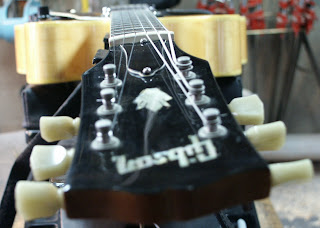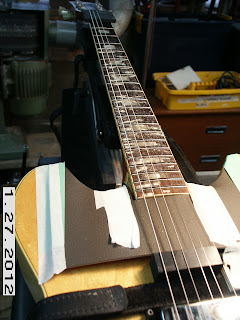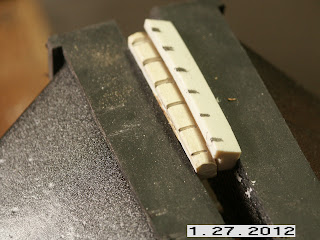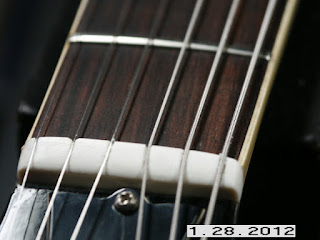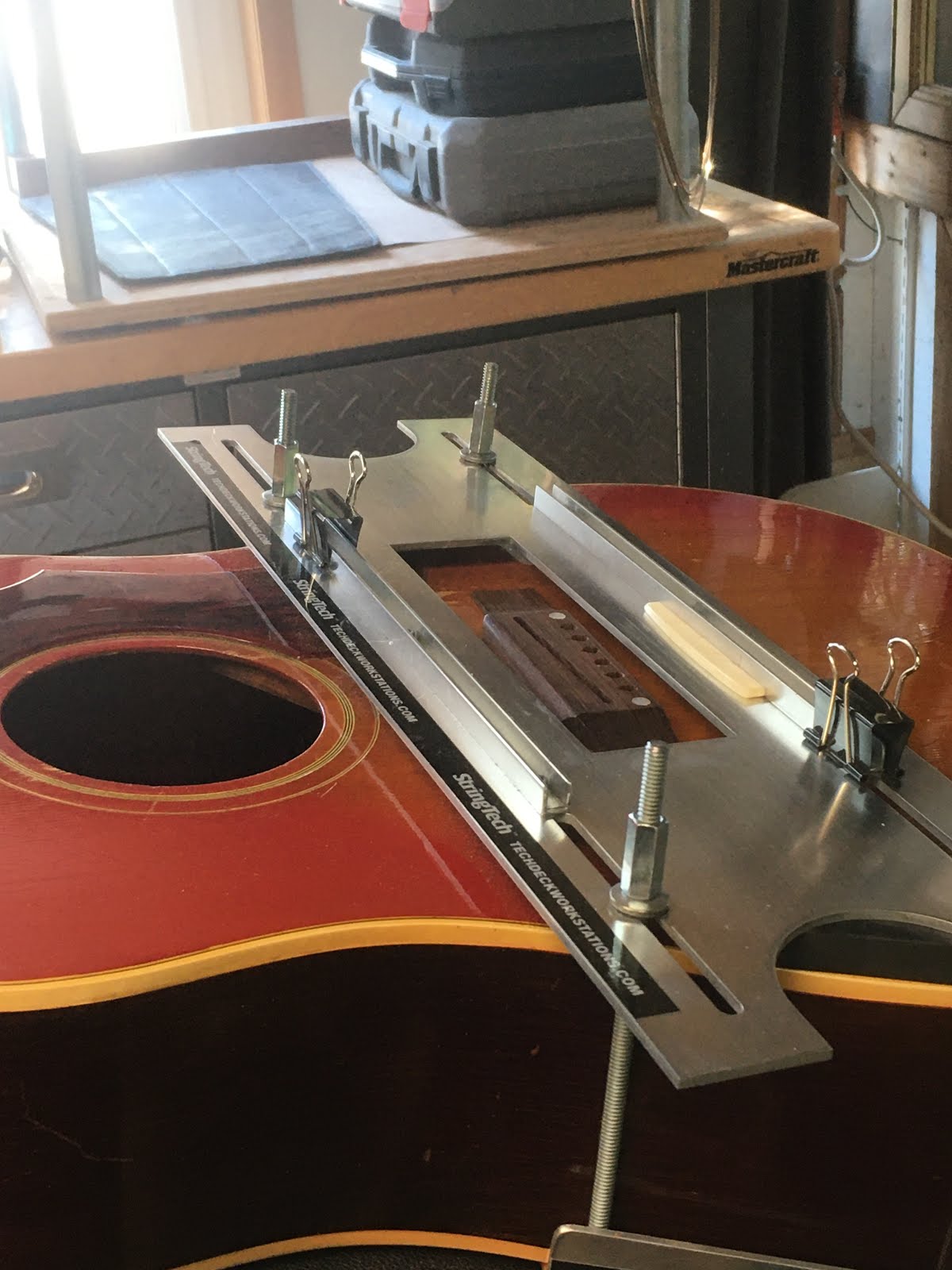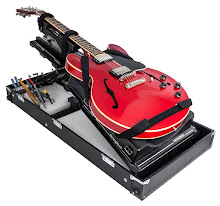#gibsonfrets
The TechDeck is the
Ultimate Guitar Repair Workstation,
for any Type of Fret work or Levelling.
This ES-150 is the perfect example of the
TechDeck's ability to tackle
the trickiest Fret Level
that you'll ever face.
BTW: I was the 5th shop that this customer
had brought this guitar into,
to find a remedy, for a seemingly impossible job.
This was a bit tricky;
but I nailed it perfectly on my first attempt.
Another shout-out, goes out to the
TechDeck Team for a flawless engineering job \m/ !!
Ultimate Guitar Repair Workstation,
for any Type of Fret work or Levelling.
This ES-150 is the perfect example of the
TechDeck's ability to tackle
the trickiest Fret Level
that you'll ever face.
BTW: I was the 5th shop that this customer
had brought this guitar into,
to find a remedy, for a seemingly impossible job.
This was a bit tricky;
but I nailed it perfectly on my first attempt.
Another shout-out, goes out to the
TechDeck Team for a flawless engineering job \m/ !!
The TechDeck's design,
function and versatility, eliminate the
the need for vices, dial callipers
arbour presses, vice grips,
or computer controlled
fret dressing machines.
All of your fret-work needs
in one multi-adjustable package.
Fret work and fret dressing
just got a whole lot easier.
Dave left this ES 150
for some fret work /
setup / compensated nut.
He mentioned that the fellow he purchased it from
had bought it from Joe Pass ( RIP )!
Apparently Joe had signed it, these pictures ( below ) were in the case.
After some second thoughts the fellow
had decided to have the signature taken off ...
I would have left it signed myself .
The tilted angle of the headstock ( below ) is a little extreme ..
but a lot of the work on these early guitars was done by hand.
I would imagine that whoever disc-sanded the face
of the headstock had a bit of a " list to the port ".
But the neck itself was not twisted.
That's a Gretsch on the other workstation
that was in for some similar work.
This was a very tricky fret dress on this ES 150.
I've decided to post this for the Level 2 students
and experienced Luthiers / Techs
to show how I handle this type of job.
Because of the multiple discrepancies in the lay of this neck,
it needed to be spot dressed in a few different places.
The rubber blocks allowed me to elevate the strings
up off of the fingerboard, leaving enough space
to slip the small 6" mill file underneath
while the neck was under string load;
balancing the load on the truss rod and
simulating the actual lay of the neck
under natural string tension.
Quick, easy, safe, and uncomplicated.
The TechDeck's pivoting neck assembly
really does the job
to support and restrict the flex of the neck,
and to hold the entire instrument rock solid
while the fret levelling is done
on this very tricky fret dress.
During the whole procedure
the instrument is held firmly against
the leather padded rails of the adjustable body platform,
preventing the guitar from slipping,
shifting, or wobbling around, while you're working.
The space between the rails, allows room for the
arched form of the back to be fully supported.
The body is cinched down very firmly
with the leather straps,
without an danger of crushing or
mashing the arched back into a flat surface.
I then checked for high spots with a 3", 6" and 12" straight edge,
and slipped a ( very straight ) 6" single cut mill file under the strings
to "spot dress" dress all the high points, that were
spread randomly, along the length of the fingerboard.
Once all the high spots were taken care of ,
this was followed up by the
regular re-crowning and polishing steps.
This is what they looked like ( above ) after final buff.
The inlays were masked off during the recrowning and polishing.
This is a nifty little vice that Bob Toft ( Level 2 student )
located at Busy Bee .... $20 !
Just go out and buy one right now while they're still available !
Thanks Bob ... for finding and sharing this little puppy
... the best one I've seen yet... anywhere for any price!
The lacquer was carefully scraped off both ends of the nut before removal ....
to avoid any chipping of the neck finish.
Got the nut out nice and cleanly.
First stage of tusq nut blank.
Second stage of compensated blank.
Transfer of string spacing.
For TechDeckers and students ....
this is how I strap the guitars down
for working / or changing / machine heads /
or reaming out the headstock etc...
This puts the headstock in the centre of my chest while working.
Final compensated nut .... very subtle ...
at a glance you would think it was the original.






